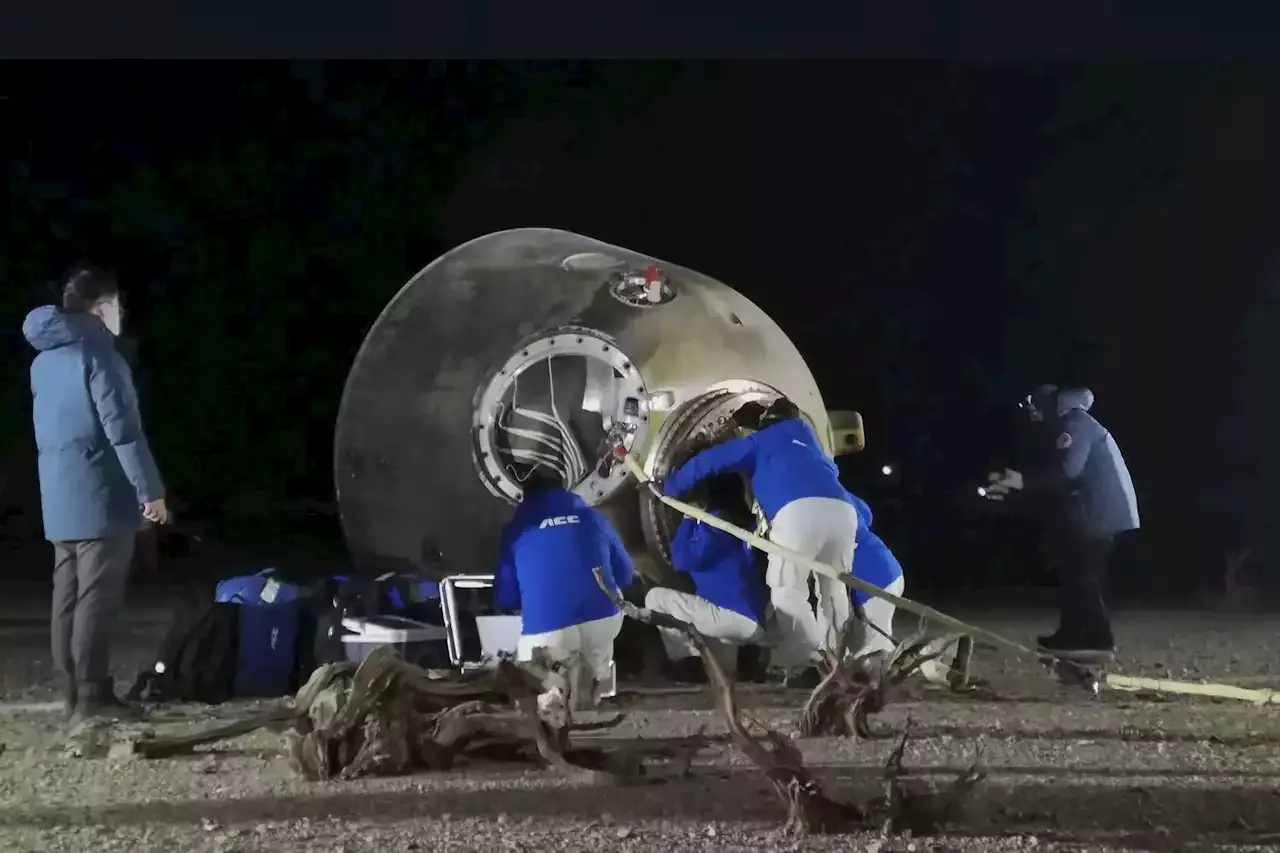Three Chinese astronauts have landed back on Earth after six months working to complete construction of the Tiangong station, a symbol of the country’s ambitious space program, state TV reported.
Liu, another of the astronauts, said that she was moved to see relatives and her fellow compatriots.
They also performed three spacewalks, beamed down a live science lecture from the station, and conducted a range of experiments.China built its own station after it was excluded from the International Space Station, largely due to U.S. objections over the Chinese space programs’ close ties to the People’s Liberation Army, the military wing of the ruling Communist Party.
Canada Latest News, Canada Headlines
Similar News:You can also read news stories similar to this one that we have collected from other news sources.
 China's Shenzhou 15 crew has busy 6 months ahead aboard Tiangong space stationThe Shenzhou 15 astronauts will conduct three or four spacewalks and more than 100 experiments.
China's Shenzhou 15 crew has busy 6 months ahead aboard Tiangong space stationThe Shenzhou 15 astronauts will conduct three or four spacewalks and more than 100 experiments.
Read more »
 Minerals never seen on Earth before found in massive meteoriteA team of researchers discovered minerals they say have never been seen before on Earth.
Minerals never seen on Earth before found in massive meteoriteA team of researchers discovered minerals they say have never been seen before on Earth.
Read more »
 A Gas Giant Exoplanet Has Been Discovered With Twice The Density of EarthA newly weighed exoplanet has left astronomers deeply puzzled.
A Gas Giant Exoplanet Has Been Discovered With Twice The Density of EarthA newly weighed exoplanet has left astronomers deeply puzzled.
Read more »
 #151 COP15: the meeting to save life on Earth; anti-ageing properties of urineFollowing repeated delays, the COP15 biodiversity conference is finally going ahead. On December 7th representatives from most of the countries in the world will meet to reach an agreement on how to address the global biodiversity crisis. There’s already a draft agreement in place, and the team explains the ambitions it lays out. But is this event likely to move the needle?A species of rat which should have gone extinct has somehow managed to keep going - and now we know why. In a story worthy of Margaret Atwood, the team finds out how the Amami spiny rat continues to survive despite losing its Y chromosome, the one which makes males. There’s a genuine space race going on, with multiple companies hoping to become the first private firm to land on the Moon. The Japanese mission ispace has hit a delay, but the team explains how a viable lunar economy is now a serious prospect.Newborn female mice who sniff the urine of other female mice live longer - considerably so in fact. The team finds out what’s going on, and whether the finding applies to humans too…And Rowan chats with Henry Gee, senior editor at the journal Nature, who has won the 2022 Royal Society science book Prize. He describes his book, ‘A Very Short History of Life on Earth: 4.6 billion years in 12 chapters’, as a bedtime story for adults, that tells the greatest story ever - the whole saga of life on Earth.On the pod are Rowan Hooper, Chelsea Whyte, James Dinneen, Michael Le Page and Leah Crane. To read about these subjects and much more, you can subscribe to New Scientist magazine at newscientist.com.Events and discount codes:Cyber Monday deal: www.newscientist.com/cybermonday
#151 COP15: the meeting to save life on Earth; anti-ageing properties of urineFollowing repeated delays, the COP15 biodiversity conference is finally going ahead. On December 7th representatives from most of the countries in the world will meet to reach an agreement on how to address the global biodiversity crisis. There’s already a draft agreement in place, and the team explains the ambitions it lays out. But is this event likely to move the needle?A species of rat which should have gone extinct has somehow managed to keep going - and now we know why. In a story worthy of Margaret Atwood, the team finds out how the Amami spiny rat continues to survive despite losing its Y chromosome, the one which makes males. There’s a genuine space race going on, with multiple companies hoping to become the first private firm to land on the Moon. The Japanese mission ispace has hit a delay, but the team explains how a viable lunar economy is now a serious prospect.Newborn female mice who sniff the urine of other female mice live longer - considerably so in fact. The team finds out what’s going on, and whether the finding applies to humans too…And Rowan chats with Henry Gee, senior editor at the journal Nature, who has won the 2022 Royal Society science book Prize. He describes his book, ‘A Very Short History of Life on Earth: 4.6 billion years in 12 chapters’, as a bedtime story for adults, that tells the greatest story ever - the whole saga of life on Earth.On the pod are Rowan Hooper, Chelsea Whyte, James Dinneen, Michael Le Page and Leah Crane. To read about these subjects and much more, you can subscribe to New Scientist magazine at newscientist.com.Events and discount codes:Cyber Monday deal: www.newscientist.com/cybermonday
Read more »
